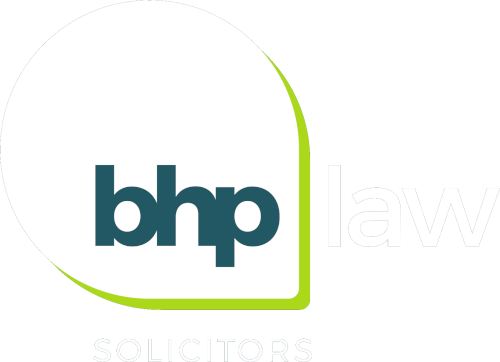5th October 2021

The Legal Aid and Advice Act 1949 is now 72 years old. In 2013, as part of austerity measures, major changes were made to the availability of Legal Aid following the Legal Aid, Sentencing, and Punishment of Offenders (LASPO) Act 2012. Legal Aid is now only available for eligible family matters in case of child protection and in cases of domestic abuse between the parties.
For which family matters can I apply for a full Legal Aid certificate?
Non-means, non-merits tested Legal Aid is available for parents and persons who hold parental responsibility for a child involved in care proceedings. It is very important that these persons receive full advice and are represented given the implications of these proceedings.
Children involved in care proceedings will be appointed a Children’s Guardian who will in turn appoint a Children’s Solicitor (or in private law proceedings where children have been joined as parties). This will be funded by applying for a Legal Aid certificate.
Other persons involved in care proceedings, such as extended family members seeking to become party to care proceedings or persons accused of causing a non-accidental injury to a child, may be eligible for means and merits tested Legal Aid depending on the circumstances.
Legal Aid may be available for private law children proceedings, such as applications for Child Arrangement Orders (to have contact with a child or to live with you), Prohibited Steps Orders and Specific Issue Orders, in cases where the other party is the perpetrator of domestic violence against you or the child is at risk of child abuse from the other party (the perpetrator) and evidence can be obtained that will satisfy the Legal Aid Agency. A Social Services letter or report can often be used as evidence of child abuse, however due to the nature of domestic abuse, which often takes place behind closed doors, it can often be difficult to obtain evidence of this.
If you are currently experiencing domestic abuse and are at immediate risk of significant harm, means tested Legal Aid is available for you to apply for a Non-Molestation Order injunction against ‘associated persons’, such as partners, ex partners, and close family members. Legal Aid may also be available for an Occupation Order injunction order, regulating arrangements for who can live in the former family home.
In cases where domestic violence can be evidenced then you may be eligible for means and merits tested Legal Aid for financial matters following a divorce.
There may be exceptional cases where you may wish to consider whether Legal Aid is available outside of the above, but this will be subject to consideration by the Legal Aid Agency, is difficult to obtain, and you should seek advice in this regard.
Evidence of domestic abuse accepted by the Legal Aid Agency
If you are a victim of domestic abuse, the prospect of facing the person who inflicted that abuse on you can be very daunting, whether the perpetrator has been able to instruct a Solicitor to represent them or is representing themselves. This is why Legal Aid is still made available to victims of domestic abuse.
The following is evidence of domestic abuse acceptable by the Legal Aid Agency:-
- Evidence of a relevant conviction for a domestic violence related offence
- Evidence of a relevant Police caution for a domestic violence related offence
- Evidence of relevant criminal proceedings for a domestic violence related offence that has not yet concluded
- A relevant protective injunction related to domestic violence (a restraining order or Non-Molestation Order) or an undertaking (formal promise made at Court) by the Respondent given in England and Wales
- Evidence that the other party has been arrested for a relevant domestic violence offence
- A letter from a multi-agency risk assessment conference (MARAC) or another suitable local safeguarding forum confirming risk of domestic violence to you
- A copy of a finding of fact made in UK proceedings that the other party has committed domestic violence
- A letter or report from an appropriate health professional confirming that you have been examined and had injuries or a condition consistent with those of a victim of domestic violence
- A letter or report from a domestic violence support organisation related to a victim of domestic violence’s refusal to a refuge
- A referral from an appropriate health professional to a person providing a specialist support or assistance in relation to domestic violence
- A relevant Domestic Violence Protection Notice (DVPN) granted against the other party
- A relevant court order binding over the other party in connection with a domestic violence offence
- Evidence of financial abuse
- A letter from an Officer of a Local Authority or Housing Association confirming that a person who you were in a family relationship with was the perpetrator and you are assessed as being or at risk of being a victim of domestic abuse
- A letter from the Secretary of State for the Home Department confirming that you have been granted leave to remain in the United Kingdom under Paragraph 289B of the Immigration Rules
- A letter or assessment from a Public Body or an expert report for the benefit of a Court or tribunal confirming that you are assessed as being or at risk of being a victim of domestic violence
- A letter from an organisation providing domestic violence support services providing an explanation of why you needed support and the type of support received
- A letter from an Independent Domestic Violence Advocate (IDVA) or Independent Sexual Violence Advisor (ISVA)
- A letter from a public authority confirming that you were assessed as being, or at risk of being, a victim of domestic violence perpetrated by a person with you are or were in a family relationship with
Means testing
For means tested Legal Aid, you will need to provide information regarding your financial circumstances with documentary evidence, such as bank statements, tenancy agreements, valuations of property such as homes and vehicles, details of persons who live with you, your employment (or last employment) and pay slips.
There are limits as to the amount of capital, income and what the Legal Aid Agency consider to be disposable income (your income less allowances for work and childcare expenses, dependent children, and housing costs).
Contributions to Legal Aid
Legal Aid is not always free and depending on your means, an offer of a Legal Aid certificate may be made subject to you making a one off payment from your capital or an ongoing monthly payment. It is usually the case that if you are in receipt of a passported benefit then you will not be required to make a monthly contribution.
You will be made aware of what is required when the offer is made by the Legal Aid Agency and your Legal Aid will not begin until you have signed and returned an acceptance form and made your first payment.
Recovery of monies when your legal fees are covered by Legal Aid
If you recover monies (for example a final financial settlement within a divorce against your abusive ex husband), then this will need to be disclosed to the Legal Aid Agency who may ask that some or all of this sum is used to settle your legal costs.
What types of family matters are covered by the Legal Help Scheme?
The Legal Help Scheme replaced the Green Form legal advice scheme following the Access to Justice Act 1999.
Advice and representation in relation to Local Authority Letter Before Proceedings/Public Law Outline (PLO) procedure. This includes a lawyer attending PLO meetings with you and advice regarding working with the Local Authority to address their concerns about your children to avoid care proceedings. This is not means tested but the evidence required is a copy of the letter before proceedings.
Advice only in relation to Social Services when your child is placed on a Child Protection Plan. This is means tested.
Advice and a warning letter to an ex partner or close family member following domestic abuse/harassment. This is means tested.
Advice and assistance in relation to divorce proceedings where evidence can be provided that you are a victim of domestic violence and your husband is the perpetrator. This is means tested. This will not cover attendance at Court and there are some provisos as to what can be done within the divorce when funded by the Legal Help Scheme. You will be expected to apply for a fee remission for the divorce Court fee (currently £550) as this is not covered by the Legal Help Scheme. If you are eligible for Legal Help Scheme you should be eligible for a Court fee remission or reduction.
Legal Aid may also be available for Family Mediation and mediation is often a required step before an application can be made to the Court.
If you are unsure if you are eligible for Legal Aid, please do not hesitate to contact us for a free half hour consultation.
BHP Law have Legal Aid experts at our Newcastle and Darlington offices.
References:-
Legal aid at 70: built to last or on its last legs? David Bowden, CILEx Journal Summer 2019 edition
Legal Aid Agency Client Case Management System – Evidence of Domestic Violence – Merits Assessment v12.1

